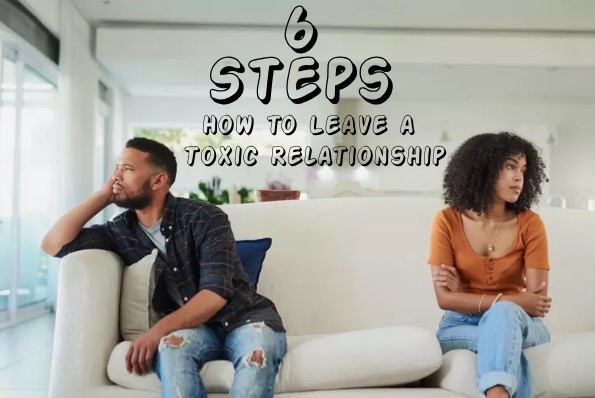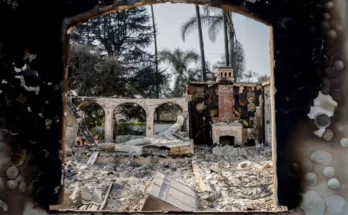How to Leave a Toxic Relationship in 6 Steps
Understanding that you’re in a toxic relationship is the first step—the next is to figure out how to leave it. “If someone finds themselves in a toxic relationship, they should get the help required to change it or get out of it,” Campbell affirms. It’s important, she notes, to start creating a game plan. Depending on the level of seriousness, this can mean confiding in friends and family for advice or seeking a therapist. “A good therapist can help you cope, restore your sense of self-worth, and address safety concerns,” Campbell continues. “So, if you have access to therapy, it is highly recommended you get professional help.”
If the problem is more involved, Campbell recommends the above, as well as saving money to move out, keeping accurate records of abusive behavior, and obtaining a restraining order. “If you have asked your partner to leave you alone and not contact you, but they continue to call or show up unexpectedly, you have grounds for a restraining order,” she says. Lastly, keep these six options in mind when you’re ready to make changes.
1. Seek Out a Therapist
Speaking to a therapist or counselor about your situation and decision to leave is one of the first steps you should take. According to Hardy, “Depending on the extent of toxicity, safety planning may be a critical step in the process of exiting the relationship. A professional can often guide you through resources, and help you navigate questions or concerns you have about your decision.”
2. Tell Trusted Family Members and Friends About Your Situation—Including Your Plan to Leave
“You may need a place to stay when you end the relationship, and people in your social network could help provide that stepping stone,” Campbell explains. “At the very least, they can offer social and emotional support.”
3. Work on Your Self-Esteem
Hardy explains that toxic relationships can negatively impact our personal belief systems—”whether it’s how we view ourselves, confidence, self-esteem, or our overall views on life”—so doing the inner work will push you in the right direction towards leaving your unhealthy relationship. “A professional can help identify negative thoughts and provide the tools to reframe cognitive distortions,” he continues.
4. Save Money
“Try to put away as much money as possible to prepare for the eventual end of the relationship,” Campbell suggests. If your partner has been violent and/or has threatened you, keep records of every instance and consider getting a restraining order against them. “Restraining orders give officers the right to search the person if the order is violated, which is important for keeping the targeted person safe,” she says.
5. Leave and Cut Off All Communication
“Continuous exchanges can prolong the healing process,” Campbell says. “Sometimes it is impossible to cut off all communication, such as when children are involved. In those cases, keep the communication direct and minimal—discuss what you must and nothing more. After some time has passed, if both people heal and change their ways, a friendship may be possible. But right after a breakup, don’t try to be friends, and definitely don’t engage in any flirting or sexual activity with the person.”
6. Identify Patterns and Lessons Learned
“It is important to not only leave a toxic relationship, but also, learn from them as well,” explains Hardy. “A professional can help you grow by exploring the relationship in-depth, family history, patterns, etc. Even in the aftermath of a toxic relationship, there is always an opportunity for growth, whether it’s relationally, personally, or professionally.”
How to Recover From a Toxic Relationship
After you’ve left a toxic relationship, Campbell recommends reinforcing boundaries and putting your happiness first. It’s also important to remember that this relationship does not define you and that you can build a future where a healthy relationship is possible. These three tips from Campbell can get you started on your path towards healing.
Take the time you need to heal.
“Spend time with people who love you and who build you up rather than tear you down,” Campbell says. “You can also spend time with animals since they provide a good model of unconditional love and help alleviate loneliness. They can also get you out into nature and interacting with others.”
Pick up some hobbies that you either used to enjoy or have always wanted to try.
“Hobbies not only boost self-esteem, but they provide a good place to meet new partners when the time is right,” Campbell notes.
Work on yourself before getting into another relationship.
“With toxic relationships, a person often loses themself,” Campbell continues. “It can take time to get in touch with who they are and to heal from the damage caused by the relationship.”



